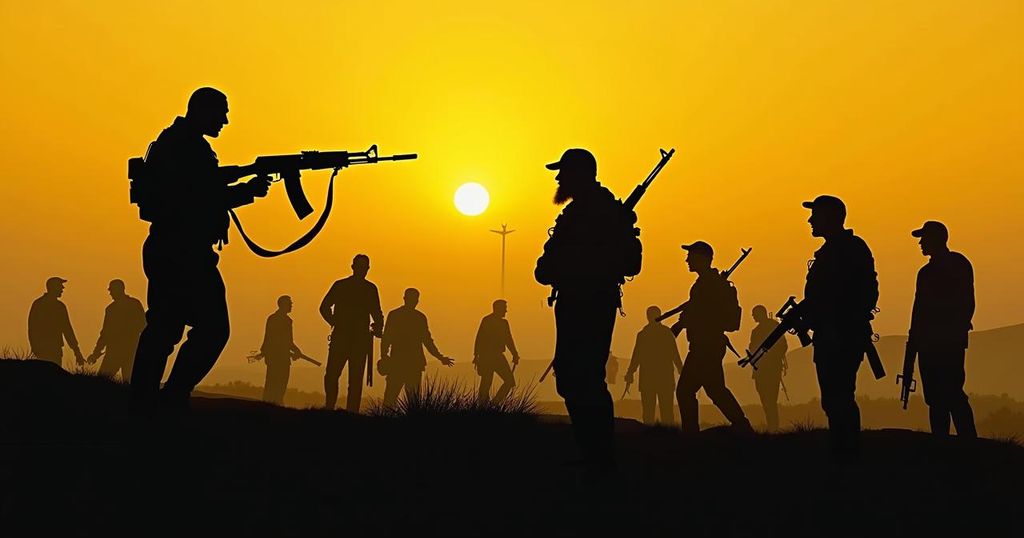Hezbollah in Disarray: The Impact of Hassan Nasrallah’s Assassination

The assassination of Hassan Nasrallah, the leader of Hezbollah, has left the organization leaderless and in chaos, presenting both challenges and opportunities for Israel, Hezbollah, and Iran. Following Israeli airstrikes in Beirut, the need for Hezbollah to respond, either through military action or strategic retreat, becomes crucial. This event bears significant implications for the geopolitical dynamics in the region, particularly regarding Iran’s influence and the operational status of its proxies.
The recent assassination of Hassan Nasrallah, the leader of Hezbollah, marks a critical turning point not only for the organization but also for the broader geopolitical landscape of the Middle East. Following a series of Israeli airstrikes in southern Beirut, which resulted in his death and that of several key commanders, Hezbollah finds itself in a precarious position, lacking a definitive leader amid ongoing military confrontations. Nasrallah has played a pivotal role in transforming Hezbollah into a formidable military entity, heavily supported by Iran, making this leadership vacuum particularly consequential. Given Hezbollah’s significant arsenal and troop deployment, the group’s immediate response remains uncertain, oscillating between potential military retaliation and a strategic withdrawal. The context surrounding this event highlights the intricate dynamics between regional powers and non-state actors. The assassination represents a culmination of intelligence efforts by Israel aimed at dismantling Hezbollah’s leadership, a contrast to previous military misjudgments observed during recent conflicts. Moreover, the repercussions of Nasrallah’s death will likely extend beyond Lebanon, influencing Iranian strategic calculations and the behavior of allied groups such as Hamas. As Israel contemplates its next moves, including the possibility of a ground invasion, it must weigh the risks of engaging what remains of Hezbollah’s operational capabilities. While Nanrallah’s elimination is a significant tactical victory for Israel, it brings into question the future strategic direction of Hezbollah and its interactions with Iran and other groups within the region. In summary, this development serves as a crucial juncture for both Hezbollah and Iran, compelling them to reevaluate their military strategies and alliances within a rapidly changing landscape characterized by heightened tensions and the potential for further escalation in hostilities.
Hassan Nasrallah led Hezbollah for 18 years, crafting its identity as both a paramilitary and political organization, deeply embedded in the resistance against Israel. His leadership was instrumental in elevating Hezbollah to one of the most potent non-state military forces globally, with significant support from Iran. Prior to this event, Israeli intelligence had been focused on tracking Nasrallah and his commanders, culminating in operations aimed at dismantling their leadership structure. His death not only alters Hezbollah’s internal command dynamics but also affects broader regional power balances involving Iran and other allies. The interplay between Hezbollah and Israel has traditionally operated under an unspoken agreement of restraint, which has recently been challenged amid escalating military actions.
The assassination of Hassan Nasrallah represents a dual-edged sword for Hezbollah. On one hand, it poses a significant setback that disrupts its command structure; on the other, it may engender a responding backlash that leads to further conflict involving Iran and its proxies. This incident may catalyze a period of instability as Hezbollah reassesses its strategies in the wake of diminished leadership. The implications of these developments bear considerable weight not only on Lebanon but on the broader regional geopolitical landscape, prompting both Israel and Iran to strategize their next moves carefully. The evolving situation calls for heightened vigilance as the potential for escalation looms.
Original Source: news.sky.com





